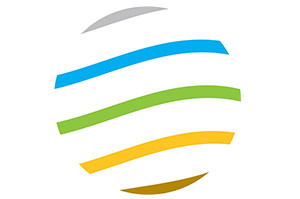 The School of Global Environmental Sustainability (SoGES) at Colorado State University has announced the selection of two Global Challenges Research Teams and four Resident Faculty Fellows from a competitive field of proposals.
The School of Global Environmental Sustainability (SoGES) at Colorado State University has announced the selection of two Global Challenges Research Teams and four Resident Faculty Fellows from a competitive field of proposals.
The awards are intended to encourage interdisciplinary understanding of complex global environmental issues, foster collaborative cross-campus partnerships, and support sustainability research at CSU.
“Our goal is to bring together a multidisciplinary team of experts to help tackle the complexities of the aerobiome, and we are thrilled that the SoGES award will provide us with a way to put our plan into action,” said Angela Bosco-Lauth, principal investigator for the Aerobiome Discovery Network Global Challenges Research Team.
The School funds innovative and interdisciplinary sustainability research that addresses grand challenges, involving faculty members and researchers from across five colleges.
“Visual communications plays a vital role in how we view and understand the world around us, and I hope to contribute to the global conversation in understanding climate change and its effects on our environment and to create a meaningful call to action for citizens and policymakers alike,”said Resident Fellow Jason Frazier.
SoGES Director Diana Wall noted that this year’s decision-making process was difficult. “We had a very innovative set of submissions on a wide range of topics,” she said. “It is clear that CSU research community is very interested in exploring and enhancing environmental sustainability.”
The Global Challenges Research Teams (GCRT):
- Sustainable Performance of Healthy and Efficient Residential Environments (SPHERE). Principal Investigators: John Volckens, Department of Mechanical Engineering; Delphine Farmer, Department of Chemistry; Sheryl Magzamen, Department of Environmental and Radiological Health Sciences; and Ryan Scott, Department of Political Science.The mission of the team is to advance discovery and innovation that promote human health and well-being in residential homes. People spend 90 percent of their lives indoors and 70 percent at home. Housing and health are interacting human rights that strongly affect quality of life; the home, as a complex, social-environmental system, is ripe for human-centered, engineering optimization. In 10 years, we envision a series of integrated public-private partnerships that pave the way for smart, connected homes that actively minimize environmental stressors while promoting the health and welfare of their occupants, regardless of socioeconomic status.
- Aerobiome Discovery Network. Principal Investigators: Amy Charkowski, Department of Bioagricultural Sciences and Pest Management; Angela Bosco-Lauth, Department of Biomedical Sciences; Justin Lee, Next Generation Sequencing Facility; Steve Reynolds, Department of Environmental and Radiological Health Sciences; Paul DeMott and Tom Hill, Department of Atmospheric Science. DNA and RNA are ubiquitous throughout the atmosphere, and genetic material originating from microbial and smaller eukaryotes is spread substantially by air currents. The team will converge previously unlinked expertise in atmospheric science, aerosol physics, infectious diseases/pathogens of plants, animals, people, and ecology, epidemiology, and microbiome/genomic sciences at CSU to explore this fascinating area. A series of workshops, panels and seminars will be planned during 2019-20 to identify the most relevant questions about this under-explored phenomenon that can be answered by the unique expertise at CSU, and will catalyze the formation of CSU expert teams who will seek external funding for these exciting research directions.
SoGES Resident Faculty Fellows:
- Jason Frazier, assistant professor of Graphic Design in the Department of Art and Art History, will examine the role of visual communications in public discourse as it relates to issues of climate change and the environment, through a series of new creative works that focus on renewable energy, climate change, and the spirit of future technologies for creating a better world. It recalls and builds upon, the pivotal visual communications work from the time of the great American mobilization — the New Deal — with the goal to further a meaningful and progressive conversation on the challenges the entire world faces today.
- Laura Raynolds, professor in the Department of Sociology, will investigate how a sustainable livelihood approach is used to pursue social and environmental goals in non-governmental certification, focusing on Fair Trade’s program in plantation products, and the synergies between these efforts and government policies, focusing on Ecuador’s pioneering Buen Vivir (good living) and Pachamama (rights of nature) policies. The fellowship will support desk and field-based research and lay the groundwork for future collaborations.
- Joshua Sbicca, assistant professor in the Department of Sociology, will study the potential for prisons to advance food justice through gardening and food production in the United States. This will include creating the first-ever complete list of federal, state, and county correctional facilities run by government entities with horticultural initiatives. With this in hand, Sbicca will design and conduct two surveys with corrections officials and incarcerated participants in horticultural initiatives to understand how they envision, experience, and carry out socioecological sustainability in the context of mass incarceration.
- Jessica Witt, professor in the Department of Psychology. Communication of scientific findings is largely accomplished through visualizations, yet little research exists on the visualizations themselves. Ineffective visualizations act as a bottleneck that limits transmission of scientific insights. Witt’s research will empirically evaluate the best visualizations for communicating research related to sustainability, with a particular focus on uncertainty and anticipating future events.
About the School of Global Environmental Sustainability
The School of Global Environmental Sustainability is at the core of a growing number of exciting sustainability initiatives in research and education at Colorado State University. SoGES serves as a hub to connect CSU’s community of scholars and practitioners interested in applying interdisciplinary perspectives to large-scale environmental, economic, and social questions not easily addressed through traditional approaches.